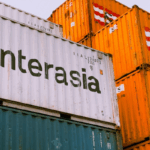Digital ID is coming to Canada and it has been sold under the pretense of making government services easier to access, more efficient, and secure with little analysis of its dark side. We have all heard that before. The government presents Digital ID as an entirely risk-free proposition. In doing so, however, it conveniently overlooks how current information flows are automated, reside in silos, and are safer from hacking, versus a Digital ID world of centralized databases that can be easily cross-referenced for any purpose.
Like a lot of new tools in the technological age, what it is must be defined first. Digital ID allows a person to have an account on a computer or mobile device proving who they are without any paperwork. Michael Goit, Director of Digital Identity, with the government of Canada, explains: “Currently, you have to input your email and password to access different types of government services offered by different departments. This leads to fragmentation. Digital ID would be a single key to open up all the doors.”
Sounds good. The government promises to protect a person’s anonymity by not allowing different departments to share information: Revenue Canada for example, does not get to know about your interactions with Health Canada. While the government assures individuals that their information will remain compartmentalized, recent actions have cast doubt on their commitment to privacy.
The Federal Liberal government has renounced its roots of classical liberalism based on individual liberty and economic freedom. The government’s use of extraordinary powers during the COVID-19 pandemic further compounds these concerns. For example, in early 2020, the government authorized the pandemic surveillance of 33 million mobile devices to track the location of Canadian citizens. The government claimed the reason was to study the effectiveness of the pandemic measures during the lockdowns and study compliance.
During the freedom convoy, thousands of protesters gathered to protest COVID mandates. Justin Trudeau invoked the Emergencies Act that gave the government unprecedented powers to arrest anyone for any reason. The last time these powers were used was during the 1970 FLQ crisis in Quebec, where politicians were kidnapped, bombs were going off, and a real crisis was on hand, not a manufactured one for political purposes that Trudeau later used as a wedge issue during his re-election bid when he failed to win a majority government. The government instructed financial institutions to stop providing financial services to anyone connected to the protests. Whether one donated $10 via GoFundMe or sold a coffee to a protester, bank accounts were frozen, people could not access their accounts, and the oligopolistic big banks never once questioned the legality of the government’s directive.
The ArriveCan application, set up at the border during COVID for contact tracing in the hope of speeding up travel, has become a nightmare. Originally estimated to cost $80,000, its expenses ballooned to $54 million. Stories like the one involving David Crouch, where he was subjected to an unnecessary two-week-long quarantine despite being quadrupled vaccinated, never testing positive for COVID-19, and being asymptomatic, highlight ArriveCan’s flaws.
The app has become Orwellian, as the Public Health Agency of Canada collected data that was used to conduct 700,000 in-person quarantine inspections. The government contracted private security and law enforcement officers to visit a person’s home to make sure they were following the rules. Let’s face it: the Liberal government’s track record does not inspire any trust in how technology might be used, and makes one wonder what they can conjure up should they have access to people’s profiles in a centralized database when the next crisis occurs.
In 2018 the World Economic Forum issued a report stating, “Our identity is literally who we are, and as the digital technologies of the Fourth Industrial Revolution advance, our identity is increasingly digital.” WEF founder Klaus Schwab predicted that there would be a fusion of our physical, digital, and our biological identities. In plain words, it means your digital identity becomes a history of your social behavior and everything you do is on file. Canada, the Netherlands, and the World Economic Forum are piloting a project, The Known Traveller Digital Identity platform, that hopes to enable passengers to fly between the Netherlands and Canada using their mobile phones instead of carrying passports.
The WEF has said that by 2030 international travel is expected to increase by 1.8 billion passengers, up 50% from 2016, and a new system is needed for airports to cope. The goal is for each traveler to have a profile so that information is collected from a passport ID, biometrics, behavioral habits, shopping logs, and bank account info for a pre-crime risk assessment. The WEF has air travel security in mind, but its unintended consequence is surveillance. Using a regular passport is far safer and less complex; a customs officer asks a series of questions, answers are provided, and no data is permanently collected. But in the digital world, everything is made permanent and can be used against you.
No discussion on Digital ID is complete without discussing the world’s leading exponent of its use, China. The Communist Party has developed a Social Credit system that uses total surveillance to monitor, punish and reward its citizens. China has 200 million surveillance cameras and 28 million state computers in use, using facial recognition technology to scan its population in minutes. Citizens are assigned social credit points based on behavior. For example, if a person is caught jaywalking, he will lose points. People have been punished for holding religious gatherings and for purchasing too many video games. Some 90,000 people have been banned from traveling due to their low social credit scores. Chinese journalist Liu Hu wrote about government corruption and was blacklisted. He could not get a bank loan, buy an apartment, or purchase train tickets, and was confined to his home. The chilling effects on individual liberties, such as restricted travel and limited access to basic services, demonstrate the dangers of an unchecked digital identity system.
Canada will inevitably produce a Digital ID system and most will argue that it is the only way to function and remain connected in a digital world. But for Canada to maintain its democratic freedoms and prevent the development of programs like social credit scores that reward and punish citizens for virtuous and nonvirtuous behavior that can then be linked to popular political causes like climate change, a Digital ID regulatory framework is needed that enhances data protection laws, prevents the centralization of data storage, and specifically outlaws any kind of surveillance and collaboration by corporations and governments.
Aldous Huxley, author of Brave New World, warned, “Democracy can hardly be expected to flourish in societies where political and economic power is being progressively concentrated and centralized. But the progress of technology has led and is still leading to just such a concentration and centralization.”
The benefits of streamlining government services should not overshadow the risks of potential government overreach, data breaches, and erosion of liberties. Ultimately, it is up to citizens to become engaged, better informed, and question their elected officials to ensure Digital IDs are not used for political purposes. Otherwise, technological “progress” will come at the expense of freedom.
Source: Catalyst Independent











